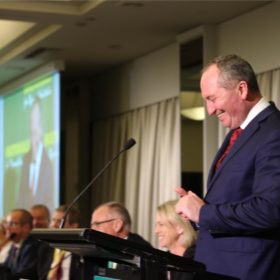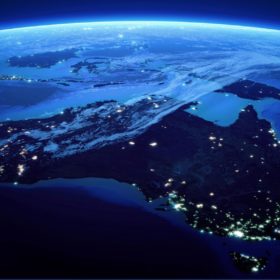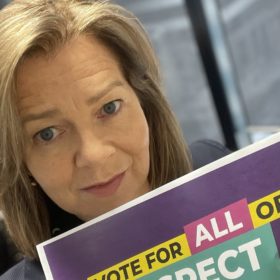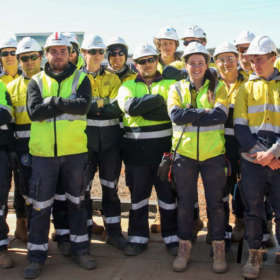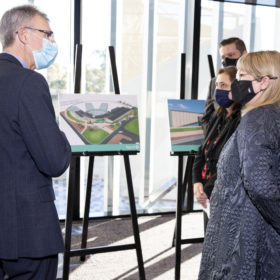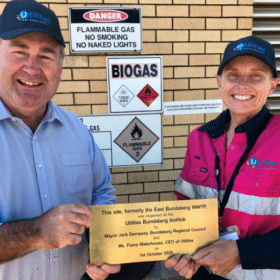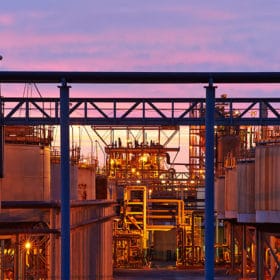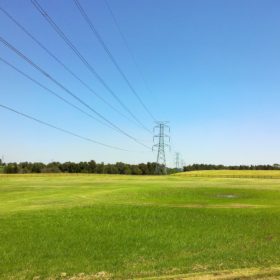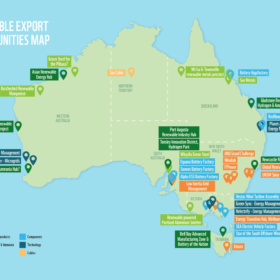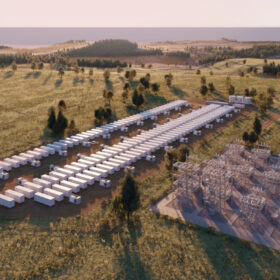Hydrogen fuel cells and equipment to be manufactured in Victoria under new H2X deal
Hydrogen vehicle maker H2X has today announced a deal with Gippsland Circular Economy Precinct which will see the pair manufacture a range of hydrogen-focussed products in Victoria’s Gippsland region. The move comes less than a week after Pure Hydrogen bought a significant stake in H2X Global.
Nats not listening: new data ‘rejects’ assumed attitudes of coal communities
While prime minister Scott Morrison’s preparation for COP26 has been shrouded in controversy, a new survey into coal mining communities’ sentiments toward renewable energy reveals widespread support for the transition. The revelation comes as WWF-Australia also released findings from its expert survey, illustrating the federal government’s lack of ambition is considered the main hurdle slowing an otherwise perfectly poised transition.
Report finds co-located hubs key to battery industry competitiveness
A report from Australia’s Future Battery Industries Cooperative Research Centre which analysed the development of battery hubs in the U.S., Germany and Japan, has found that co-location and cooperation between industry and government were key to hub success. For Australia to play the same game, it will have to leverage its wealth of resources, and clean up its act along the way.
Union boss says renewable industries must do better by workers: ‘they’re fighting because they’re proud of their legacy’
President of the Australian Council of Trade Unions, Michele O’Neil, says renewables industries have fallen short in their treatment of workers and urgently need to do more to provide quality jobs which are secure and fairly paid.
Queensland approves $23 million renewable energy training facility
The Queensland government has approved a new “state-of-the-art” renewable energy skills centre in Brisbane, which will provide training to prospective and current electrical workers to enter clean energy industries.
Advanced battery and hydrogen research facilities to be built by Victoria’s Deakin University, backed by government funds
Deakin University has received funding for two multi-million dollar facilities, one devoted to advanced battery research and the second for the development of hydrogen technology. The projects’ aims will be to overcome hydrogen’s hurdles and, for batteries, to improve existing technologies while also investigating sustainable alternatives like sodium batteries.
How a Queensland city’s co-location past is fuelling its green hydrogen future
In the world of renewable energy, the past carries charge. It can be an anchor, a learning curve, a hurdle. In Bundaberg, it’s quite literally the fuel for the future. And that green future is being energised by an unusual crew: its local government.
$11 million ARENA/Alcoa project to demonstrate efficient green alumina processing
ARENA and green-thumb Angus Taylor have launched a project to demonstrate that renewable energy can be cost competitive compared to fossil-fuel use in the processing of alumina — providing an incentive for one of Australia’s biggest industries to adopt this technology and offer low-carbon alumina to the world market.
Neoen signals start of construction for Queensland green energy hub
French renewables developer Neoen is pushing ahead with plans to construct a 157 MW wind farm and 100 MW battery project in Queensland’s far north just weeks after federal resources minister Keith Pitt blocked public funding for the project.
100+ businesses band together to demand 1% of GDP be allocated to clean energy in May budget
More than 100 Australian businesses, including some of the country’s largest, have banded together to put pressure on government to commit at least 1% of GDP to a green energy recovery in the May budget and to ensure a more equitable transition to renewables for marginalised Australians.

